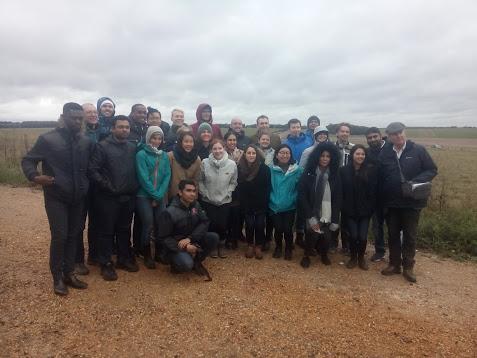
Submitted by Miss Sian Owen on Wed, 10/10/2018 - 16:16
The Engineering for Sustainable Development MPhil programme welcomed a new group of 27 students onto the programme this year, the 17th cohort since the programme began in 2002. The students come from 19 different countries including Bangladesh, Ecuador, Costa Rica, Sudan and Kazakhstan. The average age of the students is 28 as many of them have worked in a professional Engineering role prior to joining the course.
The students attended a field trip to Southern England on the first weekend to introduce them to complexities in the relationship between transport systems and landscape, with a focus on "messy problems" which impact on engineering decision making. They considered the issues of the HS2 route between London and Birmingham , the Twyford Down M3 road cutting through an area of beautiful chalkland near Winchester and the Stonehenge road tunnel controversy. The evening exercise considered the HS2 issues of how to deal with the spoil that is generated from tunelling under the M25 and through the Chilterns, the design and construction of the viaduct over the Colne Valley lakes and how to deal with the impacts on the SSSI and other stakeholders. Earlier on the first day the group visited the Building Research Establishment (BRE) near Watford and learnt of the evolution and new developments in BREEAM, and toured BRE's Innovation Park.
